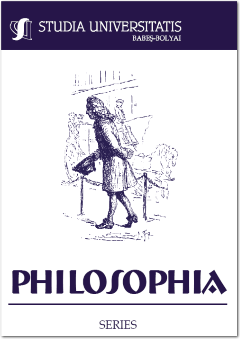A REFLECTION UPON “WALDEN”: ECOLOGICAL AND MORAL CONSCIOUSNESS IN A NEW LIGHT
A REFLECTION UPON “WALDEN”: ECOLOGICAL AND MORAL CONSCIOUSNESS IN A NEW LIGHT
Author(s): Radu SimionSubject(s): Philosophy
Published by: Studia Universitatis Babes-Bolyai
Keywords: Thoreau; Walden; environmental ethics; virtue; experiential; ecologic; morality.
Summary/Abstract: In this article I do not intend to make a review on the work of the American transcendentalist but, rather, to capture different aspects of the subjective self through which a moral and ecological core is formed. The practical importance of my work is obvious, since nowadays there is no environmental ethics article in which there can’t be found, at least once, references to the exacerbation of the Anthropocene era, to nature deficit disorder (a term invented by Richard Louv in his brilliant book, Last Child in the Woods), nature knowledge deficit, alienation, a culture of control and the will of domination. The lifestyle proposed by David Thoreau can be taken into consideration as a model for what we call “a good and flourishing life”, a virtuous life connected to natural surroundings. In fact, “Walden, or Life in the Woods” is about the love for nature seen as a sign of self-love. Having assumed his madness, a brave plunge into a space of beauty and uncertainties, of purity and honesty, Thoreau dares to dream big, to explore a world of removal from a mechanical society, to enter a space of lucidity and personal development. Next, I will explain in detail my view on the multiple meanings that Thoreau catches during his residence in the cabin from the shore of the Walden Lake near Concord, Massachusetts. For the beginning, I propose an imaginative drift, in which we could transpose ourselves, even if only for a few minutes, in a natural universe similar with the one Thoreau describes in his book. Otherwise, the incursion in the moral space of the ethics of care that dominates Thoreau’s experience will be a simple, empty theoretical construct, lacking in colour and flavour.
Journal: Studia Universitatis Babes-Bolyai - Philosophia
- Issue Year: 62/2017
- Issue No: 1
- Page Range: 157-172
- Page Count: 16
- Language: English

